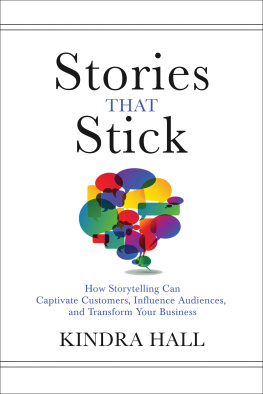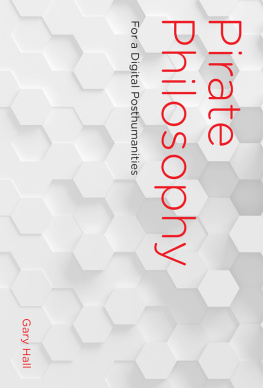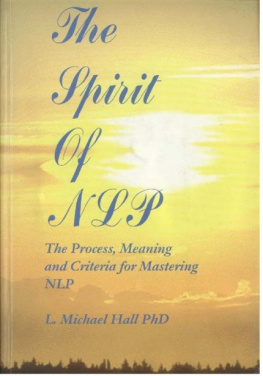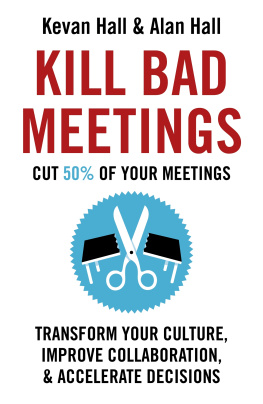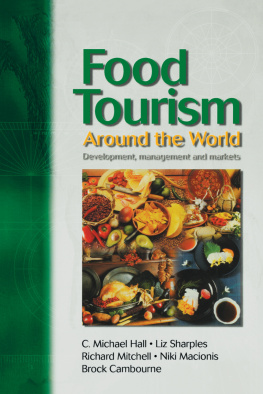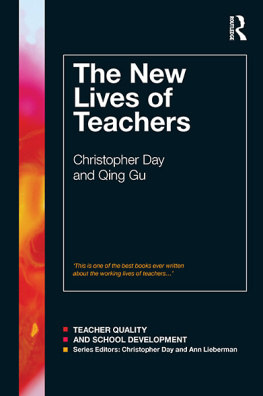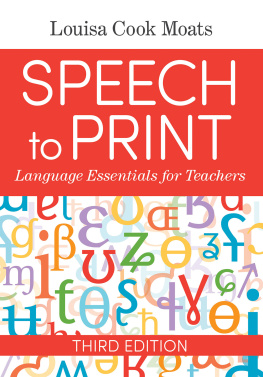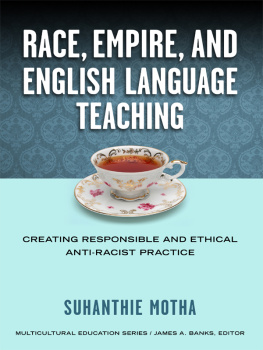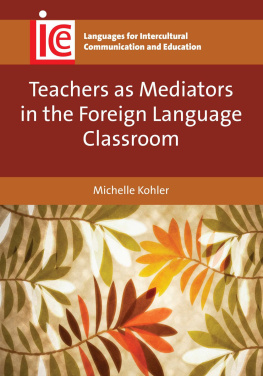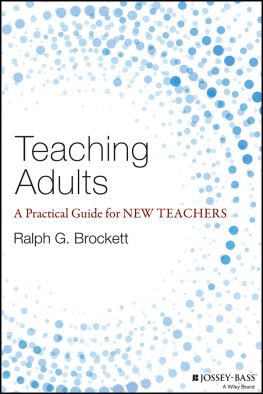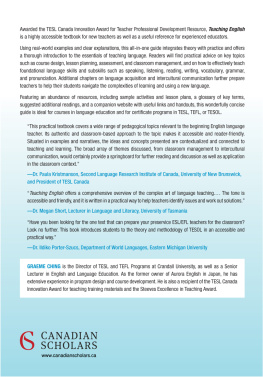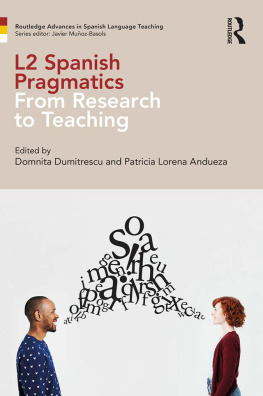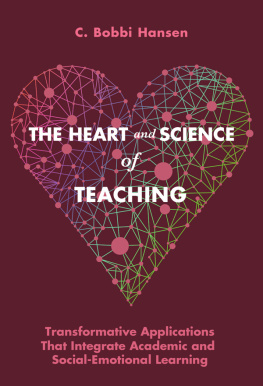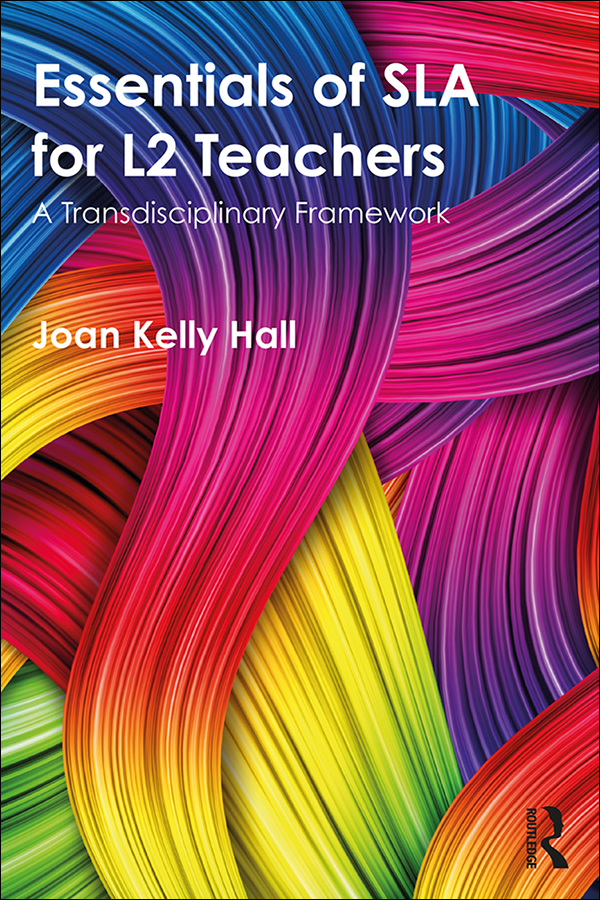Contents
Essentials of SLA for L2 Teachers
A Transdisciplinary Framework
Joan Kelly Hall

Essentials of SLA for L2 Teachers
Essentials of SLA for L2 Teachers: A Transdisciplinary Framework presents an accessible and comprehensive account of current understandings of second language acquisition (SLA) geared towards those studying to become L2 teachers. Grounded in the pragmatic and problem-oriented transdisciplinary framework of SLA, this textbook draws connections between SLA research and practices for L2 teaching. It aims to build L2 teacher expertise by strengthening teachers understandings of the many facets of L2 learning and their skills for designing transformative learning environments in their teaching contexts. The author includes pedagogical implications and inquiry-based activities in each chapter that engage readers in further explorations of the topics covered in the chapter. Short and straightforward, Essentials of SLA for L2 Teachers is the ideal main resource for SLA courses taught at undergraduate and graduate-level teaching programs.
Joan Kelly Hall is Professor of Applied Linguistics and Director of the Center for Research on English Language Learning and Teaching at the Pennsylvania State University, USA. She is a member of the Douglas Fir Group who authored the 2016 paper in The Modern Language Journal proposing a transdisciplinary framework of SLA on which this text builds.
First published 2019
by Routledge
711 Third Avenue, New York, NY 10017
and by Routledge
2 Park Square, Milton Park, Abingdon, Oxon, OX14 4RN
Routledge is an imprint of the Taylor & Francis Group, an informa business
2019 Taylor & Francis
The right of Joan Kelly Hall to be identified as author of this work has been asserted by her in accordance with sections 77 and 78 of the Copyright, Designs and Patents Act 1988.
All rights reserved. No part of this book may be reprinted or reproduced or utilised in any form or by any electronic, mechanical, or other means, now known or hereafter invented, including photocopying and recording, or in any information storage or retrieval system, without permission in writing from the publishers.
Trademark notice: Product or corporate names may be trademarks or registered trademarks, and are used only for identification and explanation without intent to infringe.
Every effort has been made to contact copyright-holders. Please advise the publisher of any errors or omissions, and these will be corrected in subsequent editions.
Library of Congress Cataloging-in-Publication Data
Names: Hall, Joan Kelly, author.
Title: Essentials of SLA for L2 teachers: a transdisciplinary framework / Joan Kelly Hall.
Description: New York, NY: Routledge, [2018] | Includes bibliographical references and index.
Identifiers: LCCN 2018010040 | ISBN 9781138744073 (hardback) | ISBN 9781138744080 (pbk.) | ISBN 9781351721837 (epub) | ISBN 9781351721820 (mobi/kindle)
Subjects: LCSH: Second language acquisition. | Language and languagesStudy and teachingForeign speakers.
Classification: LCC P118.2 .H35 2018 | DDC 401/.93dc23
LC record available at https://lccn.loc.gov/2018010040
ISBN: 978-1-138-74407-3 (hbk)
ISBN: 978-1-138-74408-0 (pbk)
ISBN: 978-1-315-18127-1 (ebk)
Typeset in Sabon
by codeMantra
Contents
Preface
This textbook was written to present essential understandings of second language acquisition specifically to L2 teachers. The understandings are organized around a transdisciplinary framework, which, while acknowledging the value of the distinct disciplinary and interdisciplinary approaches to the study of SLA, recognizes that a broader and more grounded perspective of SLA is needed to capture the multifaceted dimensions of SLA. The framework provides such a view by integrating findings on L2 learning arising from various research efforts over three levels of social activity and across time spans.
The framework was developed by a group of 15 scholars, each of whom identifies with a particular approach to SLA. The groups extensive collaborations over an extended period of time resulted in the development of the framework and a publication on the framework for a special issue celebrating 100 years of The Modern Language Journal (Douglas Fir Group, 2016, A transdisciplinary framework for SLA in a multilingual world, The Modern Language Journal, 100, 1947). In this text, I expand on the foundational work of the Douglas Fir Group by drawing connections between current understandings of the many dimensions of L2 learning and understandings of L2 teaching.
How Is the Text Organized?
The text is organized around eight themes that cover the micro, meso, and macro levels of social activity. introduces the framework and each subsequent chapter presents one of the themes. Every chapter includes a chapter abstract, an overview of the material covered in the chapter, a summary of main points, a discussion of implications for understanding L2 teaching derived from the material presented in the chapter, and a set of pedagogical activities that can be undertaken in class, individually, in pairs or small groups, or outside of class, on the readers own time.
Who Is the Book For?
The text is written specifically for upper-level undergraduate students and MA students pursuing a degree in second or foreign language teaching in institutions around the world. Students who are pursuing degrees in applied linguistics or other related fields or are new to the field of SLA may also find the book valuable. It is not meant to be a comprehensive anthology of research undertaken by the entire field of SLA. Rather, it is offered as a beginning field guide to SLA; it presents a basic introduction to current understandings of language and language learning, which includes concepts that are fundamental to these understandings, and offers considerations on how they inform understandings of L2 teaching.
The goal is to move readers to make connections to their real-life experiences as learners and teachers of languages, to transform their understandings about L2 learning and teaching, and ultimately, to facilitate their development of innovative and sustainable teaching practices that expand their L2 learners diverse multilingual repertoires of meaning making resources.
I am deeply grateful to my fellow members of the Douglas Fir Group for the wide ranging intellectual discussions that led up to the publication of the 2016 co-authored article, which inspired this book. I am also indebted to the following graduate students who read various chapters and offered insightful comments and suggestions: Michael Amory, Yingliang He, Olesya Kisselev, Tianfang (Sally) Wang, and Rebecca Zoshak. Special thanks to my colleague, Karen Johnson, for her collaboration and contributions, and to Yingliang and Sally who provided enormous help in compiling reference lists and from whose copyediting skills I benefited greatly. Finally, I thank the publishing team at Routledge for their patience and support in seeing this project through to completion.
Introduction
A Transdisciplinary Framework of SLA
Almost everyone has experienced the learning of a language or languages in addition to their first or native language. For some, the experience may take place in the classroom, where the study of foreign languages is a common subject area offered by schools. Others first encounters with another language may come from living with caregivers such as grandparents or care providers who speak a language that is different from the dominant language of the community. In these contexts, individuals typically learn different words and phrases in the language of their caregivers to communicate with them about their home-life experiences.


